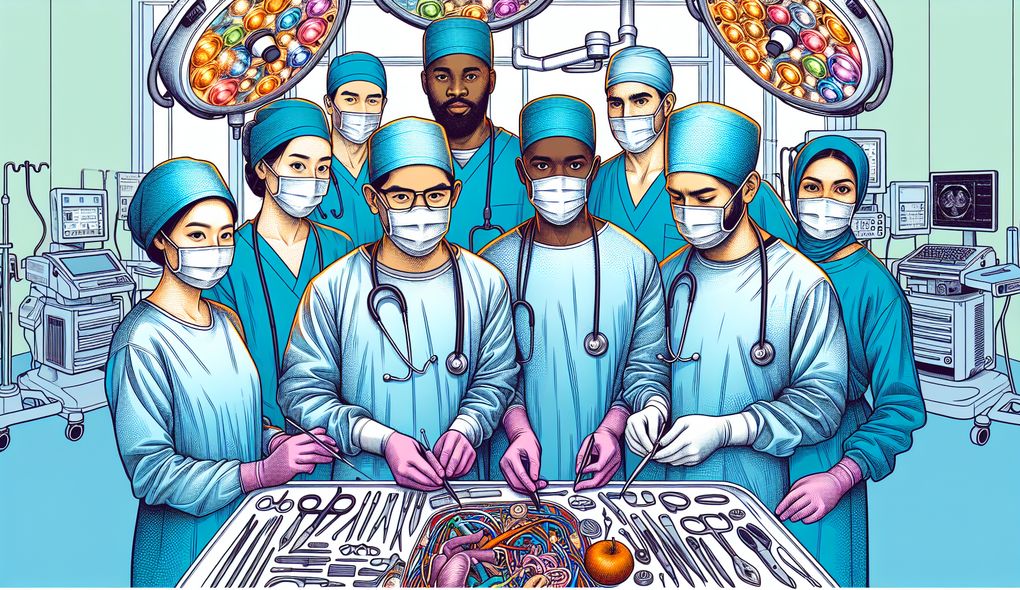Tell me about a time when you had to deliver difficult news to a patient. How did you approach the situation?
JUNIOR LEVEL

Sample answer to the question:
During my time as a surgical resident, I had to deliver difficult news to a patient who was recently diagnosed with advanced stage cancer. I approached the situation with empathy and compassion. I scheduled a meeting with the patient and their family to discuss the diagnosis and treatment options. I used clear and simple language to explain the situation and answered any questions they had. I ensured that they understood the prognosis and the potential risks and benefits of the treatment. I provided emotional support and reassured them that they would receive the best care possible. It was a challenging conversation, but I believe it is important to be honest and transparent with patients during difficult times.
Here is a more solid answer:
During my surgical residency, I encountered a patient who was diagnosed with stage IV cancer. It was a challenging situation, but I approached it with empathy and professionalism. I scheduled a meeting with the patient and their family to discuss the diagnosis and treatment options. I started by actively listening to their concerns and addressing them one by one. I used clear and simple language to explain the prognosis and the different treatment options available. I made sure they understood the potential risks and benefits of each option. I also provided emotional support and reassurance throughout the conversation. The patient and their family expressed their gratitude for my honesty and support during such a difficult time. I continued to follow up with the patient, providing additional resources and connecting them with a support group to help them cope with the news. It was a challenging experience, but I believe that open and compassionate communication is essential when delivering difficult news to patients.
Why is this a more solid answer?
The solid answer provides more specific details about the approach taken, including actively listening to the patient's concerns and providing ongoing support. It also highlights the positive outcome of the conversation and the measures taken to help the patient cope with the news.
An example of a exceptional answer:
During my surgical residency, I had the responsibility of delivering difficult news to a patient who was diagnosed with advanced stage pancreatic cancer. I approached the situation by first gathering all the necessary information about the patient's condition and treatment options. I prepared myself mentally and emotionally to handle the conversation with empathy and professionalism. I scheduled a dedicated meeting with the patient and their family in a comfortable and private setting. I started the conversation by acknowledging the seriousness of the diagnosis and expressing my genuine concern for their well-being. I used clear and concise language, avoiding medical jargon, to explain the prognosis and the available treatment options. I took the time to answer all their questions and addressed any concerns they had. Throughout the conversation, I maintained a calm and compassionate demeanor, providing emotional support and reassurance. I ensured that the patient and their family felt heard and understood, emphasizing that they were an integral part of the decision-making process. After delivering the news, I offered additional resources such as support groups and counseling services to help them cope with the emotional impact of the diagnosis. I followed up with the patient regularly, providing updates, answering any new questions, and offering ongoing support. The patient and their family expressed their gratitude for my honesty, empathy, and the level of care I provided during such a challenging time. This experience reinforced the importance of open and compassionate communication in delivering difficult news to patients.
Why is this an exceptional answer?
The exceptional answer goes into even more specific details about the approach taken, including gathering all necessary information, preparing mentally and emotionally, and creating a comfortable and private setting for the conversation. It also emphasizes the ongoing support provided to the patient and their family, as well as the additional resources offered. The answer shows a high level of empathy, professionalism, and patient-centered care.
How to prepare for this question:
- Familiarize yourself with the different types and stages of cancer to enhance your knowledge and confidence in discussing diagnoses with patients.
- Practice active listening techniques to better understand and address patients' concerns and emotions during difficult conversations.
- Develop a clear and concise way of explaining medical concepts to patients, avoiding complex terminology that may confuse or overwhelm them.
- Research and become familiar with available resources and support services to offer patients and their families when delivering difficult news.
- Role-play difficult conversations with colleagues or mentors to refine your communication skills and gain feedback on your approach.
What are interviewers evaluating with this question?
- Clinical Skills
- Communication Skills

